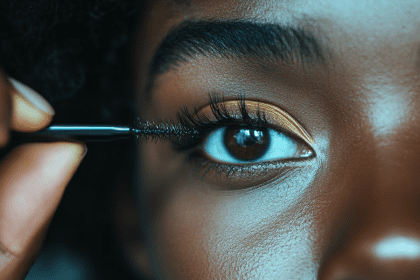The increasing number of young women entering the prison system is a troubling trend that has raised significant concerns among policymakers, social workers and families. Understanding the root causes and implications of this phenomenon is essential for developing effective interventions and support systems. This article explores the factors contributing to the rising incarceration rates of young women, the impact on their lives and communities and potential solutions to address this issue.
Why are more young women going to prison?
In recent years, the incarceration rates for young women have been steadily increasing. This trend is not only alarming but also indicative of broader social, economic and cultural issues that need urgent attention. Unlike their male counterparts, the pathways to incarceration for young women often involve a unique set of challenges and circumstances.
Socioeconomic factors
One of the primary reasons for the rise in incarceration rates among young women is socioeconomic disparity. Many young women who end up in prison come from economically disadvantaged backgrounds, where access to education, employment opportunities and social services is limited. Poverty often leads to a lack of stable housing, inadequate health care and limited access to quality education — all of which contribute to a higher likelihood of engaging in criminal activities.
The cycle of poverty and crime is particularly pronounced among young women who may turn to illegal activities as a means of survival. For instance, involvement in drug trade, theft or prostitution can often be traced back to financial desperation. Additionally, the lack of social safety nets and support systems exacerbates their vulnerability, making it difficult for them to escape the conditions that lead to criminal behavior.
Mental health and substance abuse
Mental health issues and substance abuse are significant contributors to the increasing incarceration rates among young women. Many young women in prison have experienced trauma, abuse or neglect, which can lead to mental health disorders such as depression, anxiety or post-traumatic stress disorder (PTSD). Without proper mental health care and support, these individuals may turn to substance abuse as a coping mechanism.
Substance abuse not only increases the likelihood of engaging in criminal activities but also impairs judgment and decision-making, leading to a higher risk of incarceration. Furthermore, the criminal justice system often lacks the resources and training to address the underlying mental health and substance abuse issues, resulting in a cycle of reoffending and re-incarceration.
Domestic violence and exploitation
Another critical factor contributing to the rise in incarceration rates among young women is domestic violence and exploitation. Many young women in prison have been victims of physical, emotional or sexual abuse, often at the hands of intimate partners or family members. This abuse can lead to criminal behavior as a means of self-defense or survival.
In some cases, young women may become involved in criminal activities due to coercion or exploitation by abusive partners. This can include involvement in drug trafficking, theft or prostitution, where they are often manipulated or forced into criminal behavior. The criminal justice system frequently fails to recognize the complex dynamics of domestic violence and exploitation, resulting in the incarceration of victims rather than providing the necessary support and protection.
Education and employment opportunities
Limited access to education and employment opportunities is another factor contributing to the increasing incarceration rates among young women. Education is a critical determinant of future success, and young women who drop out of school or do not have access to quality education are at a higher risk of engaging in criminal activities. Without a high school diploma or vocational training, job prospects are limited, leading to financial instability and increased likelihood of criminal behavior.
Employment opportunities for young women, particularly those from marginalized communities, are often scarce and poorly paid. The lack of stable, well-paying jobs can lead to financial desperation, pushing young women toward illegal activities as a means of survival. Additionally, the criminal justice system often does not provide adequate support for education and employment training, making it difficult for incarcerated young women to reintegrate into society successfully.
The impact on families and communities
The rising incarceration rates of young women have far-reaching consequences for families and communities. When a young woman is incarcerated, it not only affects her but also her children, family members and the broader community. Children of incarcerated mothers often face significant challenges, including emotional trauma, financial instability and disrupted family structures. These children are at a higher risk of experiencing behavioral problems, poor academic performance and involvement in criminal activities, perpetuating the cycle of incarceration.
Communities with high incarceration rates of young women often experience social and economic instability. The removal of young women from these communities can lead to a loss of social cohesion, increased poverty and reduced access to essential services. Additionally, the stigma associated with incarceration can hinder the reintegration of formerly incarcerated young women, making it difficult for them to find employment, housing and social support.
Potential solutions and interventions
Addressing the rising incarceration rates of young women requires a comprehensive approach that tackles the root causes and provides support for those affected. Some potential solutions and interventions include:
Improving access to education and employment opportunities
Ensuring that young women have access to quality education and employment opportunities is crucial for preventing incarceration. This includes providing funding for schools in economically disadvantaged areas, offering vocational training programs and creating job opportunities for young women from marginalized communities. Additionally, support services such as mentorship programs and career counseling can help young women build the skills and confidence needed to succeed.
Providing mental health and substance abuse treatment
Addressing the underlying mental health and substance abuse issues that contribute to criminal behavior is essential for reducing incarceration rates among young women. This includes increasing funding for mental health services, providing training for criminal justice professionals on recognizing and addressing mental health issues and offering substance abuse treatment programs both within and outside of the prison system. By providing the necessary support and treatment, we can help young women break the cycle of addiction and criminal behavior.
Supporting victims of domestic violence and exploitation
Providing support and protection for victims of domestic violence and exploitation is crucial for preventing incarceration. This includes creating safe shelters and support services for victims, offering legal assistance and ensuring that the criminal justice system recognizes the complex dynamics of domestic violence. Additionally, programs that focus on empowering young women and building their self-esteem can help them escape abusive situations and build a brighter future.
Reforming the criminal justice system
Reforming the criminal justice system to address the unique needs of young women is essential for reducing incarceration rates. This includes implementing alternative sentencing programs such as community service, probation or restorative justice, all of which focus on rehabilitation rather than punishment. Additionally, providing education and vocational training programs within the prison system can help incarcerated young women build the skills needed for successful reintegration into society.
Breaking the cycle of prison for young women
The increasing incarceration rates of young women are a complex and multifaceted issue that requires urgent attention. By addressing the socioeconomic factors, mental health and substance abuse issues, domestic violence and exploitation and limited access to education and employment opportunities, we can work toward reducing the number of young women entering the prison system. Additionally, providing support for those affected and reforming the criminal justice system are crucial steps in breaking the cycle of incarceration and building a brighter future for young women and their communities. Through comprehensive and compassionate interventions, we can create a society where young women have the opportunities and support they need to thrive and succeed.
This story was created using AI technology.

















